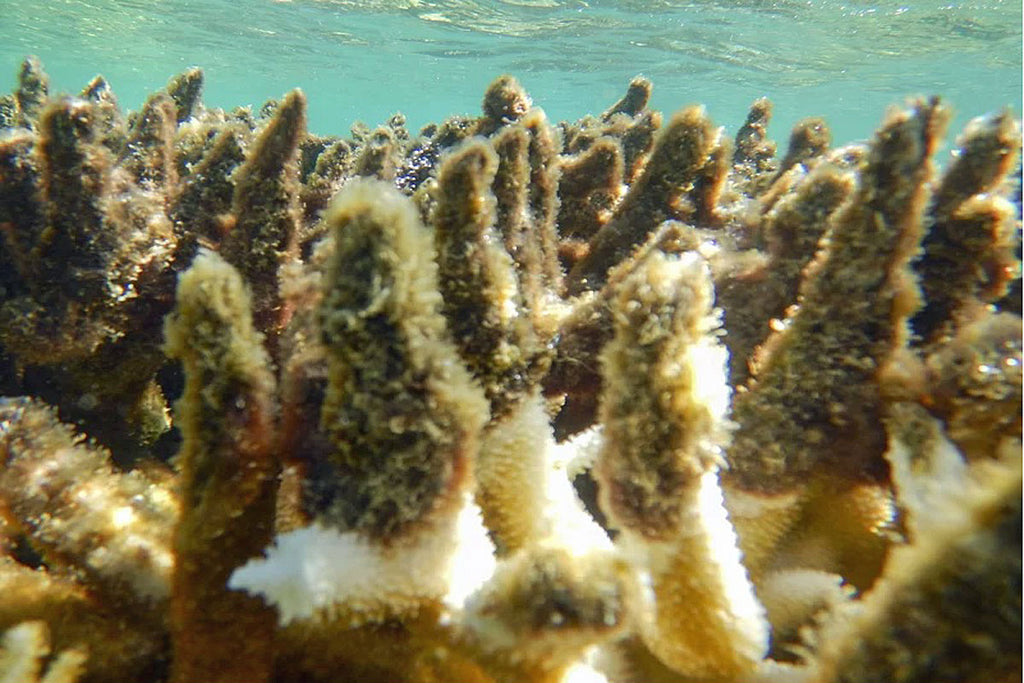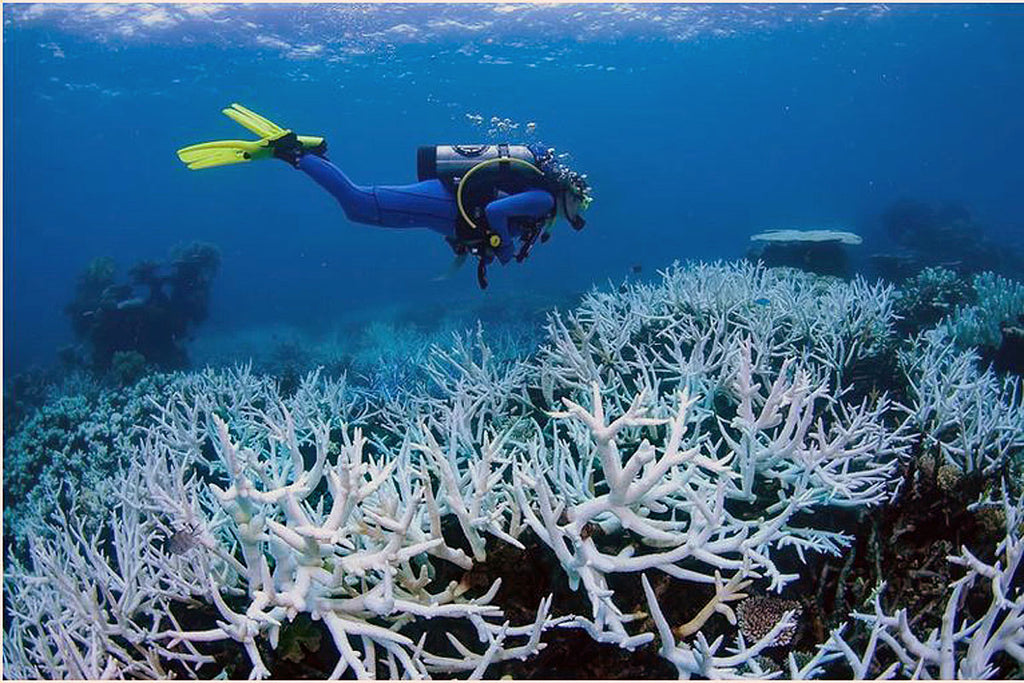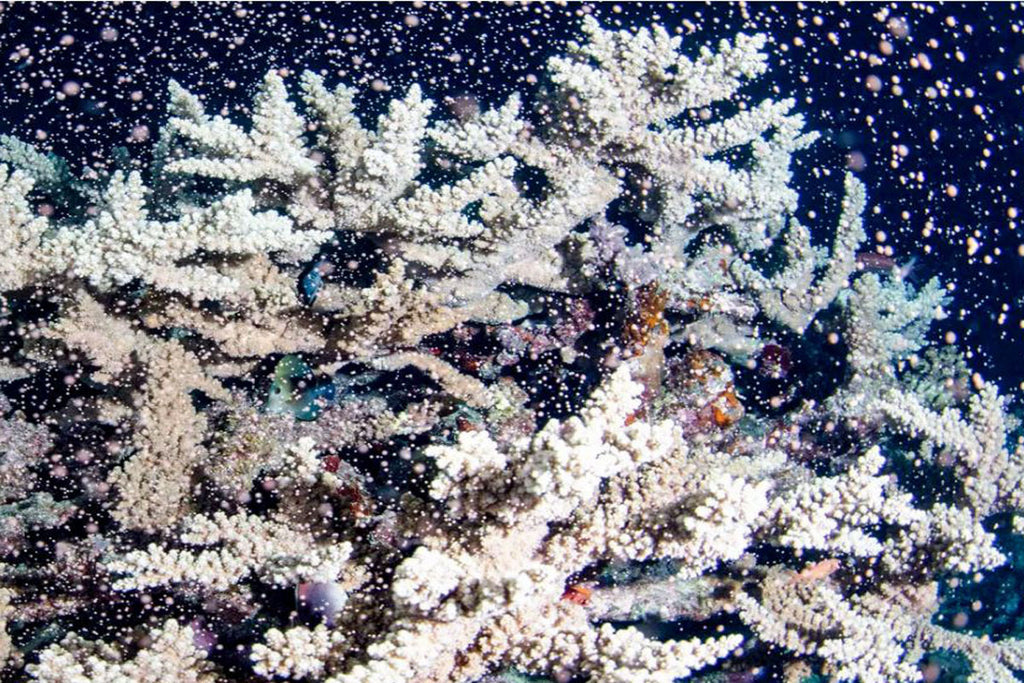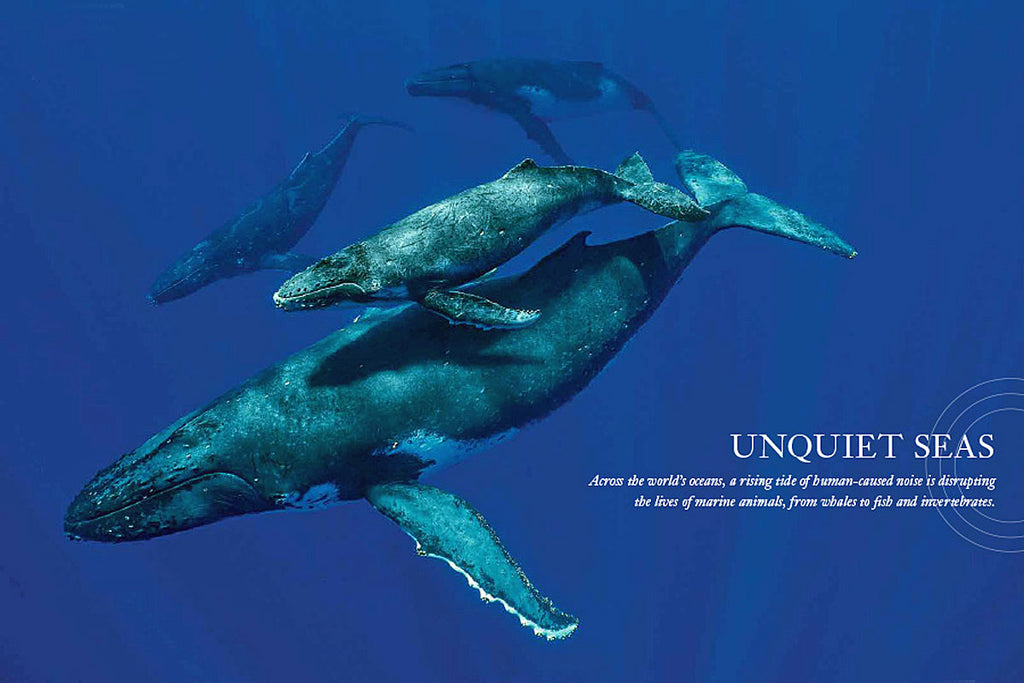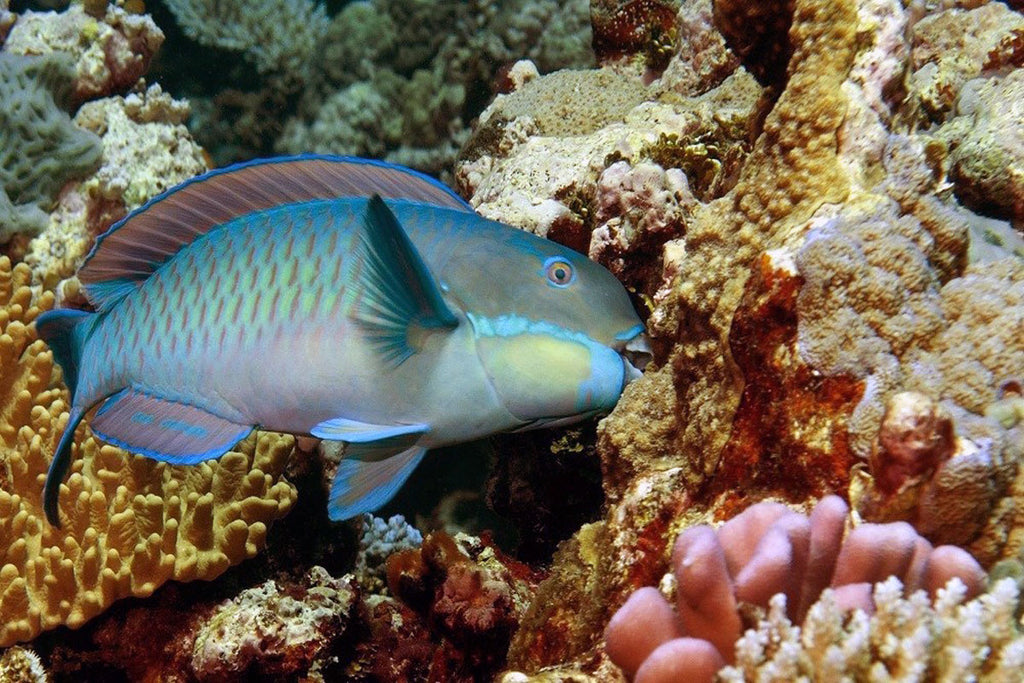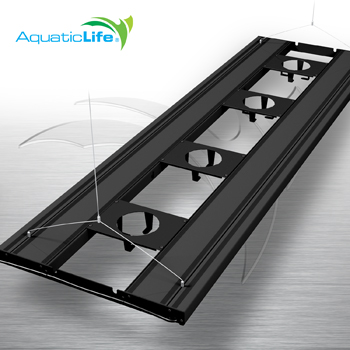Parrotfish May Help Revive Dying Coral Reefs
- News
- 02 Jun, 2020
As the world’s coral reefs face danger from ever increasing water temperatures brought on by global warming, a study released Monday finds that parrotfish thrive in the wake of coral bleaching and that population boom could in turn help regrow dying reefs. The parrotfish, garishly colored fish named for their sharply packed teeth that resemble a beak, are known for their diet of algae that form on coral reefs. As water temperatures rise, however, the reefs go through a condition known as coral bleaching when the corals lose the algae they need to survive. Up to a quarter of ocean life is believed to use coral reefs for their survival.
“Warming oceans place enormous pressure on reefs and if the temperatures remain high for too long the coral will die. The more frequently this occurs there is less time for coral reefs to recover,” said Brett Taylor of the Australian Institute of Marine Science. The research team examined fish populations in two severely bleached areas of the Great Barrier Reef in the Pacific Ocean and the Chagos Archipelago in the Indian Ocean. As reefs undergo coral bleaching, many species of fish either move to other areas or die off.
The surprising find the scientists made, published in the journal Global Change Biology, was that parrotfish seemed to thrive in these areas of coral bleaching, while every other species declined sharply in population. The parrotfish use their teeth to scrape microorganisms off coral and likely help to repair them. “When bleaching reduces coral cover on the reefs, it creates large areas of newly barren surfaces,” Taylor said. “This immediately gets colonized by the microalgae and cyanobacteria, basically an internal and external layer of ‘scunge’, which provides nutritious, abundant food for parrotfish.”
The research team discovered that this likely helps both corals and parrotfish to thrive in a “feedback loop, slowly bringing each other into balance.” When reefs are damaged, parrotfish come in to eat the scunge, giving the coral a better chance to recover from bleaching. As the reefs are repaired, parrotfish population declines. Scientists discovered an abundant amount of parrotfish at both sites – which are nearly 5,000 miles apart – suggesting that the feedback loop is inherent to the reefs’ ecology.
“Parrotfish are a vital link in the reef ecosystem,” said co-author Mark Meekan of the Australian Institute of Marine Science. “As herbivores, their grazing shapes the structure of reefs through effects on coral growth and suppression of algae that would otherwise proliferate. Because of these important ecological roles, they have been described as ‘ecosystem engineers’ of reef systems.”
Previous studies have shown that parrotfish are essential for the health of coral reefs, but Monday’s study shows just how interlinked the two are. “We found reef ecosystems in two different oceans had the same response to global heat events which is indicative of the current magnitude of climate change effects,” Taylor said.

